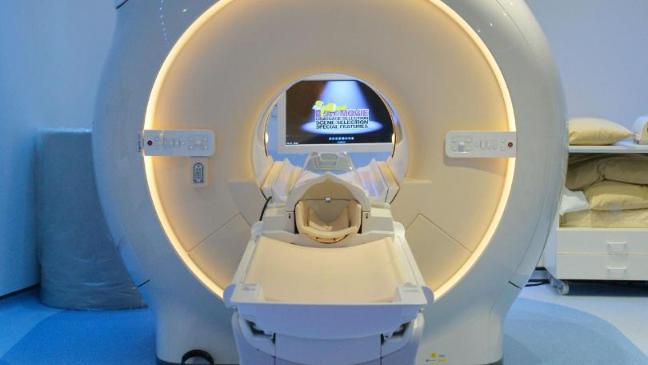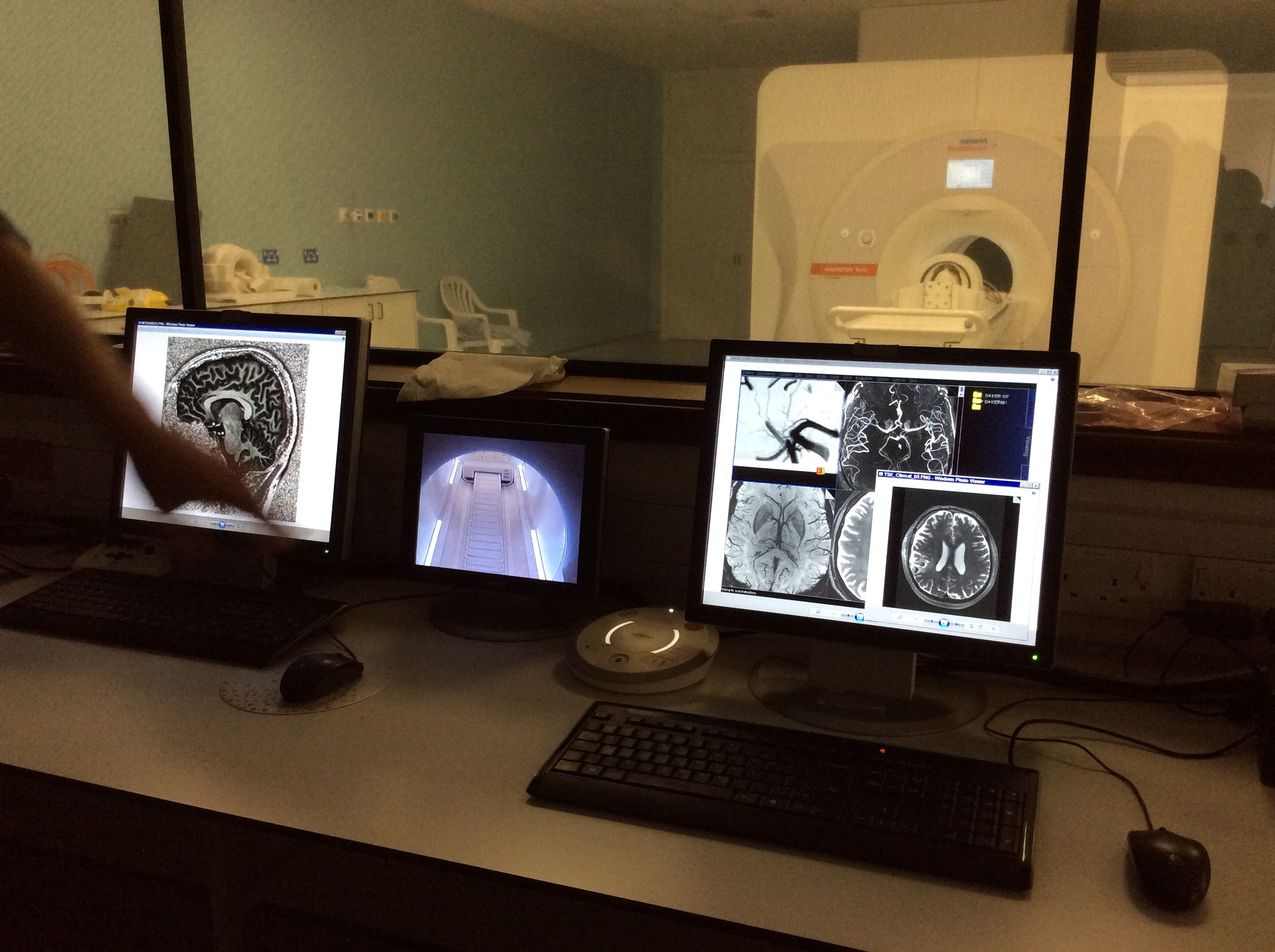Medicine is set to change beyond our current perceptions and understanding. We are at the beginning of a revolution that will change the way we think about health provision as individuals, and in society as a whole.
Sue Berry, a careers adviser with SDS, recently attended a placement with Canon Medical in Edinburgh and at the Imaging Centre of Excellence in Glasgow. Here she tells us, in her own words, the insights she gained into this fascinating sphere, and the people who are shaping our medical future and associated technology..

What is precision medicine?
Precision medicine is a developing medical model that customises healthcare with medical decisions, treatments and practices that are tailored to the individual patients need. Diagnostic testing is employed to select appropriate and targeted therapies based on a patient’s genetic blueprint or cellular analysis with incredible precision. Preventative or Therapeutic treatments can be concentrated and targeted, saving expense, time and side effects. Customising healthcare in this way is set to revolutionise medicine. Tools employed in precision medicine includes imaging and analytics.
Scotland is a global leader
Scotland has the potential to be the world leader and significant government investments have been made in this field. Industry, The global market in precision medicine is estimated to move from $43 billion in 2016 to a projected $217 billion by 2028. The market is moving at a fast pace and attracting a lot of interest, and collaboration between industry, Universities and the NHS will ensure Scotland stays at the forefront of this growing market.
We are coming into what is now being called a perfect storm of an ageing population, spending in the NHS coming under increased pressure, and the increased predictions about disease, means that the cost of healthcare is increasingly becoming unsustainable. There is a belief that costs could rise by 25% in the coming years.
The diseases which affect humankind in greater measure are cancer, diabetes, mental Illness and heart disease. There are greater challenges ahead. Most available medicines don’t work for everyone and over 50% of such are wasted because people are all different and individuals respond differently to different treatments. To be effective and efficient for those variations in the population, medicine must be effectively targeted to achieve the best possible outcomes for everyone.

Artificial Intelligence in precision medicine
Artificial Intelligence is providing a paradigm shift in this emerging market. Programs and software are being developed to provide deep insights into health. Artificial intelligence uses complex algorithms and software to reproduce and analyse complex medical data. AI programs are being developed and applied to diagnosis, treatment protocols, drug developments and personalised medicine in monitoring and providing health care. Radiology and Imaging are the technologies which benefit most for from AI developments just now, but this will soon change and grow,
Experience at the cutting edge
The placement at Canon Medical provided insight into new technologies and the people involved developing them. In a suite of offices in the suburbs of Edinburgh, amazing research and development is taking place. Many of the employees were graduates of universities, Edinburgh being ideally placed to attract people to the highly skilled workforce. They were a highly motivated group of people whose collaborative work practices enabled them to be productive in their pursuit of developing technologies. 60% of the workforce were software engineers, 20% were scientists, 12% were from clinical backgrounds and the NHS, all supported by colleagues in IT and Business Administration.
Radiographers, clinical experts, software engineers, ergonomists, imaging engineers - the list goes on -are all working together with colleagues both here and globally sharing a wealth of knowledge. The dedication and shared expertise was evident in each department.
The crucible of learning research and development
The metaskills in action at Canon Medical formed a crucible for learning, research and development. Creativity, problem solving, listening, and a respect for each other’s contributions enabled the teamwork to be very productive. Unique combinations of interdisciplinary activity were fascinating to observe. Most of the employees had gained their degrees in Biology, Physics, Medicine, Information Technology, Imaging technologies and Software Engineering. People had varying career paths which were unique yet complementary in this skills mix.
Fusions of learning in science, technology and the creative arts were astonishing to observe. One person’s career path had begun as undergraduate studying Immunology, followed by postgraduate work in Medical Visual Anatomy linking Glasgow Medical School and the Art Faculties led them to start an internship in surgical imaging. At Canon Medical their main area of work is to develop solutions for products and clinical applications for stroke patients. In another section of the workplace Ultrasound programs were developed for prostrate and liver screening. The teams demonstrated again the fusion of people drawn from different disciplines and experiences which enable them to develop technologies for these conditions.

Apprenticeship in action
Sophie was a Modern Apprentice who had recently joined the company in the Information Technology Support Systems sectim. She had left school with at S6 with Highers and went on to university, but after a short while it became apparent that she really wanted a career where she could learn and develop whilst in employment. Having left university, she discovered the MA opportunity at Canon Medical. She is thoroughly enjoying her time there and is learning from hands-on experience. Team members provide a variety of perspectives which add to the richness of being part of the network. Sophie will gain qualifications whilst working, along with the experience and all the benefits that being in employment gives.
Career developments and careers implications
There are no wrong paths, and the examples people shared of their education, training and experiences were unique. A degree in stem subjects would be useful, the ability to acquire software experience and applications are essential in this fast-paced and moving environment. The fusion of biology and computer science is a definite advantage. Significantly the meta skills required were very important for all employees when creating life changing technologies. One example given of transferable skills was a person who studied animation technology at degree level, who was then able transfer to work using imaging technology. At first glance this may have not seemed compatible, but it worked, for both the employee and the company.
New courses and career paths will increasingly be forged.
Links with schools – STEM careers
Many of the employees at Canon Medical are STEM ambassadors and give their time to working with schools and encouraging students using a variety of activities to foster interest in science and allied careers. The other people on the placement were teachers involved with stem, all of whom had amazing scientific backgrounds, knowledge and an enthusiasm to share and inspire students in their subject disciplines. Experiences were shared, and interesting ideas developed.
Read Part 2 of Sue's guest blog here.